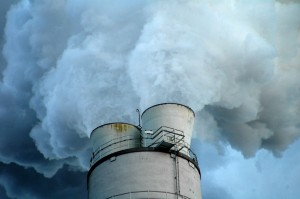Pollution: A Weapon of Oppression

It’s no secret that pollution is a danger to our health. Air pollution, specifically, has been linked to asthma, chronic obstructive pulmonary disease (COPD), heart attack, diabetes, pulmonary cancer, birth defects, leukemia, and premature death. While it is nearly impossible for anyone to avoid air pollution altogether, the concentrations of air pollution are disproportionately worse for some. The logical solution to avoiding these highly polluted areas would seem to be simply not living near them, but not everyone has that choice.
A new study in the New England Journal of Medicine monitored Medicare beneficiaries over a twelve-year period from 2000-2012 and showed that air pollution causes the most damage to low-income and racial minority communities—both of which are comprised of people who inarguably have less opportunities than others in the United States. While air pollution studies have been conducted countless times, the sample areas have traditionally been in wealthy and urban areas where minorities are underrepresented. This new study, on the other hand, used a far wider sample size of 60,925,443 people from an array of socioeconomic groups.
So, this becomes a question of whether low-income families are moving into highly polluted, less desirable areas, or are we polluting more in these low-income communities? It’s a little of both, but it’s also more complicated than that. We can start by throwing out the bogus argument that “people should just move if they are getting sick.” We all know it doesn’t work that way.
Let’s talk about environmental discrimination. No, the environment itself does not discriminate against people, but the people who make decisions on what happens to our environment certainly do. Policy makers and large corporations, whose interests are to please their constituents and stock holders, respectively, won’t think twice about dumping their garbage on minorities.
Environmental injustice is nothing new. Pollution dumping grounds near black neighborhoods, chemical waste sites in rural areas, and hazardous industrial sites surrounding predominantly minority communities are all commonplace. These communities also have unequal waste management in their neighborhoods, unequal rates of environmental cleanup, tend to have less health regulations in hazardous jobs, and less opportunity to influence environmental legislation.
Low-income families may move to less desirable areas that happen to be more polluted because these areas are what they can afford, may be near where they work, where their families live, or where their children go to school. More than likely, it’s less of a choice and more of a circumstance. Health and environmental standards are more neglected in low-income and minority communities because the people in these communities and areas lack the resources to fight it and are therefore seen as a smaller threat compared to wealthy, white communities.
The disregard for the safety and survival of these communities is becoming more blatant. Donald Trump’s proposed EPA cuts this year would eliminate the Office of Environmental Justice, which serves to close the disparity between the levels of pollution experienced by minority and low-income communities and wealthy white neighborhoods. This is clear discrimination “To cut the Environmental Justice program at EPA is just racist,” says the Sierra Club’s John Coequyt. “I can’t imagine what the justification would be, other than racism.” Likewise, Ken Cook of Environmental Working Group said, “Through this decision to zero out funding for the EPA’s environmental justice programs, the president and [EPA head Scott Pruitt] have sent a shameful message: the health of poor Americans is less important than that of the wealthy.”
If you want to get a good idea of how polluted your community is, your socioeconomic status is the best indicator, as seen in this chart. And if you’re still waiting for confirmation that electing a crooked big business billionaire as president is going to improve living standards for those who’ve been struggling for the past decade, I suppose you could always try holding your breath.
